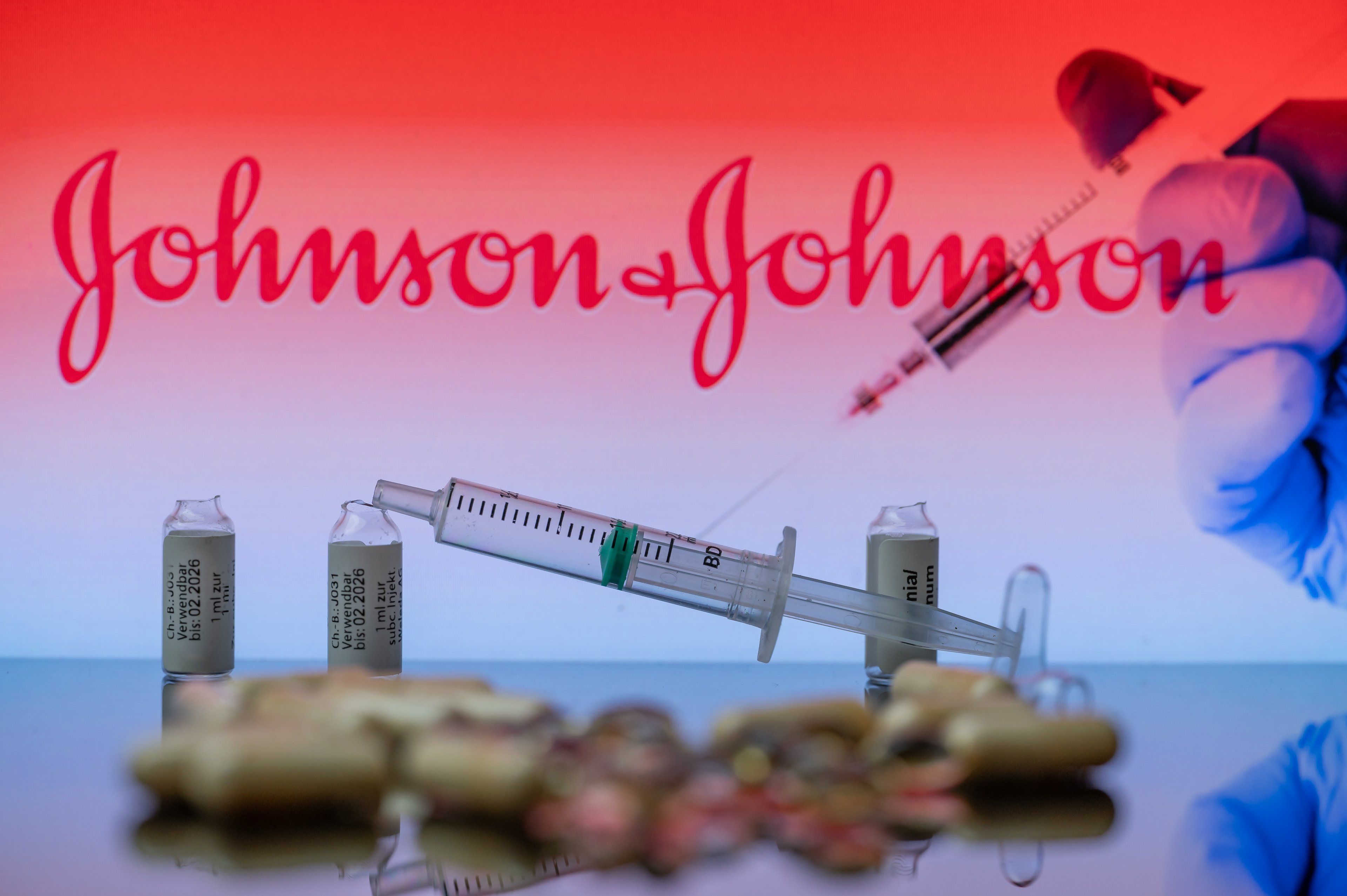Johnson and Johnson (JNJ 0.66%) is the latest to suffer a failed depression treatment. ADX71149, in-licensed from Addex Therapeutics, recently failed to meet its primary endpoint for anxious depression in Phase 2a trials. While it failed to beat placebo for anxious depression, it will still be studied for other uses, partially based on the study showing efficacy signals on both anxiety and depression measures.
The license agreement between J&J and Addex would have dealt 112 million euros in milestones and double-digit royalties. For Addex, which is publicly traded in Switzerland and already undergoing cost-cutting measures, this announcement is a major setback. ADX71149 was one of the two lead products for the company. The other compound was dipraglurant for levodopa-induced dyskinesia in Parkinson's disease. Addex focuses on small molecules that function as glutamate receptor modulators, and the company could have benefited from proof of concept had the antidepressant's trial results been positive.
For Big Pharma giant J&J, this is a drop in the bucket in light of the below-expected 2014 guidance released early this month, which caused a sell off from investors. J&J is one of the largest health care companies globally and has a highly diversified portfolio of health care products that has kept its price relatively stable in the past. Looking at just its pharmaceutical branch, it has a very healthy pipeline and is riding into 2014 with newer drugs like Zytiga, Xarelto, and Invokana ready to drive sales. Additionally, J&J has a considerable pull for investors with its high dividend yield of ~3% and a commitment to increasing that yield.
<a href="http://ycharts.com/companies/JNJ/chart/#/?securities=include:true,type:company,id:JNJ,,&calcs=include:true,id:price,,&zoom=1&format=real"><img src="http://media.ycharts.com/charts/07394bafe604a91a86dfaf82dba1d4ae.png" alt="JNJ Chart" /></a><p style="font-size: 10px;"><a href="http://ycharts.com/companies/JNJ">JNJ</a> data by <a href="http://ycharts.com">YCharts</a></p>
Other novel approaches fail
Other pharmaceuticals have been assessing novel approaches for depression as well to no avail. Shire (NASDAQ: SHPG) recently announced failed Phase III studies for the use of its ADHD medication Vyvanse as an adjunctive treatment for depression. The drug did not meet primary efficacy endpoints in two studies and Shire has pulled the program. Nonetheless, Vyvanse will be filed for binge-eating disorders later this year. Shire's best-selling drug would have only expected an increase in sales of $300 million had it been approved for depression. The bigger significance of the new indication would have been the diversification of Shire's portfolio as the market for ADHD medications is stressed by tightening regulations as well as strong competing medications like Adderall and Ritalin.
Special K – special enough?
Ketamine has been a hot approach for depression as well. Early studies showed that the popular party drug/hallucinogen resulted in rapid response in patients with refractory depression. However, it is complicated by the psychoactive side effects which recreational drug users seek. As a result, pharmaceuticals have been designing ketamine-like substances to eliminate those and other side effects. However, failures have been coming here as well. AstraZeneca's (AZN +0.68%) ketamine-like drug AZD6765 was recently pulled for both safety and efficacy in Phase IIb studies. Johnson & Johnson is in mid-stage trials for a ketamine nasal spray (Esketamine) with fast-track FDA approval, and Naurex will be applying for approval of its own ketamine-like substance, GLYX-13 in 2016 .
The market
Over 30 million people in the U.S. are estimated to suffer with a major depressive disorder, or MDD, in their lifetimes, and clinical depression is only expected to rise, especially as more people with depression begin to get treated. Despite high demand for new antidepressants for refractory patients, depression drugs are notoriously difficult for developers. There are high placebo response rates, making it more difficult for therapeutics to meet the primary endpoint of beating placebo and many past trial failures. Overall, the lessened profitability makes it difficult for pharmaceuticals to invest in R&D for mental health, which certainly contributes to the paucity of new psychiatric drugs coming out of their pipelines.
That being said, there is still hope for antidepressant R&D. Takeda and Lundbeck gained approval for their antidepressant Brintellix in both the U.S. and Europe late last year, and it hit the U.S. markets this past January. However, the mechanism is quite similar to existing antidepressants, targeting predominately serotonin receptors.
J&J adds to the pile of drug failures for antidepressants, particularly those of novel mechanisms. For the individual developers, these failures are not necessarily major setbacks for the overall financial picture of the company – however, it is worth considering the chilling effect this may have on other pharmaceuticals from developing new antidepressants.







